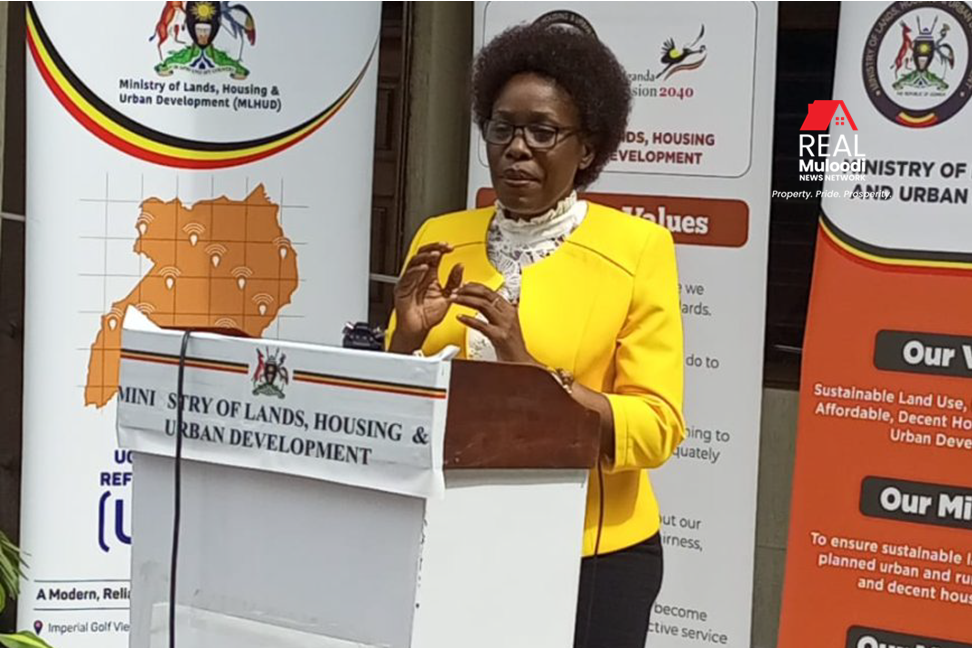UGANDA, Kampala | Real Muloodi News | Uganda has been grappling with a disturbing trend of land grabbing, and the Minister of Lands, Housing, and Urban Development, Hon Judith Nabakooba, sheds light on the key culprits behind this menace.
She points to the involvement of land brokers and selfish politicians who collude with wealthy individuals to illegally seize people’s land.
Minister Nabakooba expressed her concern during a media briefing at her office in Kampala while discussing the achievements of the Competitiveness and Enterprise Development (CEDP) project.
She firmly believes that eradicating land grabbing in the country requires tackling the issues at their source.
She attributes the blame to land brokers and politicians driven by self-interest, who not only contribute to land grabbing but also fuel public discontent by deflecting blame onto the government.
Nabakooba assures Ugandans that with the support of the CEDP, the fight against land grabbing will be more effective.
The CEDP project encompasses five components, with Component 1 led by the Ministry of Lands, Housing & Urban Development, focusing on land administration reform.
Within this component, efforts are directed towards improving land administration, systematically registering communal and individually owned land, strengthening institutions for land dispute resolution, and enhancing land administration and management institutions.
To improve land administration, the CEDP project undertakes various activities, such as constructing zonal land offices, developing a Land Information System, enhancing land use planning functions, and streamlining land valuation and registration processes.
Additionally, the project involves developing legal and policy frameworks, strengthening survey and mapping capacity, and creating base maps for land administration.
A critical aspect of the project involves the systematic registration of communal and individually owned land. This includes establishing communal land associations, demarcating and registering communal and individual lands, and issuing titles to rightful owners.
The CEDP project also focuses on strengthening institutions and mechanisms for resolving land disputes. This includes reviewing rules and procedures, providing capacity-building support, and raising awareness of land laws to ensure fair and just resolutions.
Minister Nabakooba highlights the achievements of the CEDP project, which include operationalising 22 Multi-Zonal Offices with a fully installed National Land Information System (NLIS), registering a substantial number of land titles, and issuing Certificates of Customary Land Ownership.
Other accomplishments encompass the development of the National Physical Development Plan, modernising the Geodetic Reference Framework, and producing base maps for land administration.
Looking ahead, the CEDP-AF phase aims to bolster private sector investment in the tourism sector while further strengthening the land administration system.
The upcoming phase will focus on infrastructure development, enhancing the NLIS, demarcating and issuing titles to peri-urban and rural parcels, forming and registering communal land associations, and strengthening land valuation and management institutions.
In response to land eviction issues, the government has implemented measures to protect the rights of bibanja holders, establish guidelines and procedures for evictions, and involve relevant authorities in resolving disputes.
The restructuring of the CEDP project is geared towards optimising its effectiveness and ensuring the successful completion of the CEDP-AF objectives.
READ MORE LIKE THIS:
UPDF Officer Accused in Apaa Land Grabbing Case Granted Bail
Govt Accused of Facilitating Land Grabbing in Acholi Sub-Region



